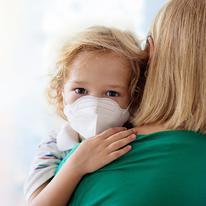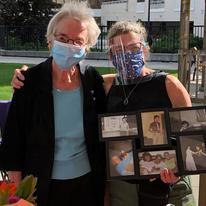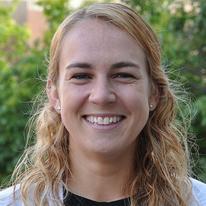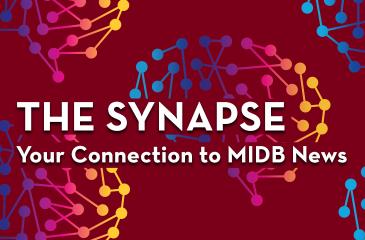The Synapse: June 2021
An Interdisciplinary Culture of Collaboration: Q&A with Neely Miller, MIDB Clinical Research Coordinator
Clinical research will be a cornerstone of MIDB, and work continues to develop the research programs, associated core services, and equipment capabilities in the new research space, which will continue to be called the Center for Neurobehavioral Development (CNBD). We are fortunate to have Neely Miller on board as the MIDB's new clinical research coordinator. She brings to the position extensive experience in coordinating and managing the research activities of the CNBD, and in this brief Q&A has provided insight into some of the research enhancements we can look forward to when MIDB opens this fall.How are you approaching research in new or unique ways?
One of the core concepts of MIDB is removing barriers to sharing knowledge and helping folks break out of their ‘cognitive box.’ By bringing together faculty from across disciplines and removing barriers between clinicians and researchers, we are creating and encouraging an interdisciplinary culture of collaboration. Communication is key here and allows us to approach research questions in a more integrated and comprehensive way, accelerating the pace of discovery and making a difference in the lives of kids and families.
How will this benefit researchers, patients and families?
This integrated model will provide a seamless experience for families interacting with MIDB. On a logistical level, this means a family will have a one-stop shop for their clinic and research visits, and a comprehensive resource for connecting with support programs and research opportunities. More significantly, MIDB will mobilize our resources to get the discoveries our scientists make out into the clinics and community faster so that we can really make an impact on the lives of families. This is a game changer.

Examining Adolescent Brain Development

Supporting Patients and Families

Crisis Upon Crisis: New Impact Issue Has Launched
Exclusive research data on COVID-19 mortality rates among people with disabilities, insight from leaders in the disability field on the effect of multiple crises, and practical tips on maintaining education and well-being in the face of disaster are all available now in the just-launched issue of Impact. Impact is published by the Institute on Community Integration and the Research and Training Center on Community Living and Employment, in part under grants from the U.S. Department of Health and Human Services. Each issue is dedicated to a topic of importance to the disability community. This issue’s editors also wrote a feature article on the inequities people with disabilities face during and in the aftermath of disasters and crises, from the pandemic to natural disasters to social unrest.

Celebrating Five Years of Transforming Autism Research

WASABI Study is Just What Teens with Social Anxiety Need Right Now

Stepping Back to Move Forward
“You have to take into account what the family is going through outside of the clinical environment,” said Megan Andre, a 2019–20 Minnesota Leadership Education in Neurodevelopmental and Related Disabilities (MNLEND) Program graduate. “It’s really easy to get stuck in the professional mindset and only think about the technical aspects of what needs to be accomplished in the appointment.” Combined with her residency training and earlier career experiences with people with a variety of neurodevelopmental disabilities, MNLEND solidified the family-centered care she now delivers, and the understanding that disparities in resources can have a dramatic impact on how therapies are accessed. Read more about Andre.

Members of ICD Develop Curriculum for the The Ladder Mentorship Program
Members of the Institute of Child Development’s Outreach and Engagement Committee recently initiated the development of a curriculum for elementary, middle, and high schoolers about stress, the body, and coping for The Ladder’s May virtual session on mental health. The Ladder is a club for kids from North Minneapolis who are interested in health careers. The program offers a structured environment of service learning, leadership development, and cascading mentorship. It aims to expose children and youth to health careers in an integrated manner and includes members from fourth grade all the way through practicing physicians. Dr. Anita Randolph, head of MIDB's Engagement CORE, fostered the introduction between ICD and The Ladder. Learn more about the multi-part curriculum.




